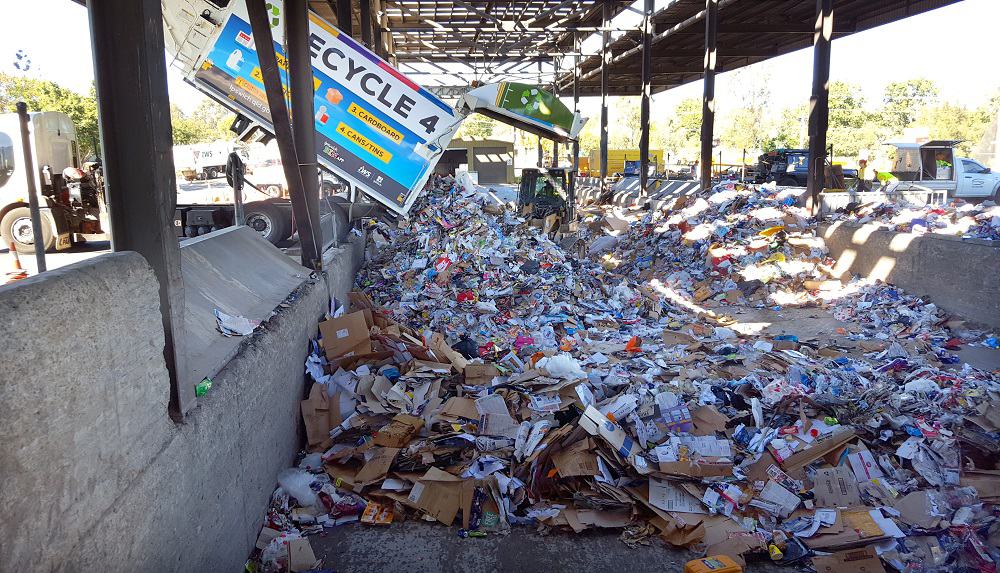
The Ipswich community has brought recycling bin contamination rates down from 52 per cent to 18.8 per cent in just three months.
The second round of council audits of yellow top bins has just been completed and the citywide contamination rate for August is an outstanding 18.8 per cent.
In June the contamination rate had been reduced to 24.6 per cent. When council introduced its Recycle 4 campaign in May this year the contamination rate was an unacceptable 52 per cent.
Council is aiming to achieve a goal recycling bin contamination rate of 15 per cent or lower.
Council CEO Sean Madigan said the second independent audit clearly shows that Ipswich residents understand the importance of the Recycle 4 message and have embraced measures to reduce contamination.
“Together, we are winning the war on waste. We have focussed on four specific items for the recycling kerbside collection service and the vast majority of residents are responding by putting the right rubbish in the yellow top bins.
“With everyone’s support, we can reduce contamination rates ever further. We are definitely on the right track.”
The good news on lower contamination rates follows council’s move to introduce two more glass collection points for residents to deposit glass bottle and jars, in addition to the Riverview and Rosewood Recycling and Refuse centres.
The August audit revealed the highest contamination in the recycling stream included:
• Food/kitchen scraps – 22.2 per cent
• Glass fines – 3 per cent
• Other plastic – 16.1 per cent
• Bagged garbage – 5 per cent
• Nappies – 3 per cent
• Disposable paper product – 5 per cent
The lowest recorded daily average of contamination was 13.45 per cent and the highest 24.36 per cent.
Residents are encouraged to sign up to the Ipswich Bin App or visit the Ipswich City Council web page for more detailed information on recycling, or phone 3810 6666.
The Recycle 4 campaign urges residents to put only the following in the yellow top bins:
Paper – newspaper, magazines, junk mail, office paper
Plastic – bottles and containers (milk, soft drink and shampoo bottles; yoghurt and ice-cream tubs)
Cardboard – boxes including pizza boxes
Cans and Tins – aluminium and steel (drink cans, food tins and aerosol cans)


2
1
5
3.5